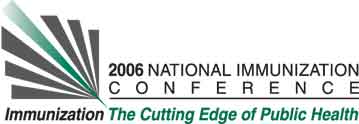Ann Marie Navar1, Neal Halsey
1, Terrell C. Carter
2, Daniel A. Salmon
2, and Martha M. Montgomery
1. (1) Division of Disease Control, International Health, Johns Hopkins School of Public Health, 615 N. Wolfe Street, Suite 5515, Baltimore, MD, USA, (2) College of Medicine, University of Florida, 1329 SW 16th Street, Room 5239, PO BOX 100177, Gainesville, FL, USA
Learning Objectives for this Presentation:
By the end of this presentation, participants will be able to:
1) Understand the proportion of obstetric practices and hospital-based prenatal education classes that offer women immunization information.
2) Understand the frequency of pediatric prenatal visits and proportion of women who receive one.
Background:
Parental vaccine safety concerns, lack of knowledge regarding vaccines, and delays in immunization of children under 2 suggest a need for improved vaccine risk communication. The prenatal period offers an excellent opportunity for immunization education. No national data exist on the frequency of vaccine education during the pediatric prenatal visit, routine obstetric prenatal care, or hospital based education classes.
Objectives:
This study sought to determine the proportion of first time mothers who receive a pediatric prenatal visit, the proportion of obstetric practices and hospital-based prenatal education classes that provide pregnant women with immunization information, and the willingness of obstetric practices to provide such information as part of routine obstetric prenatal care.
Methods:
Telephone survey of 100 pediatric practices and 100 obstetric practices using a nationally representative random sample and all hospitals identified by obstetricians.
Results:
Seventy-one obstetric practices and 85 pediatric practices participated in the survey (response rate=78%). Twenty-three percent of obstetric practices (95% Confidence Interval : 13-34%) reported providing pregnant women information routine childhood immunizations. Only 17% (4-23%) of obstetric practices were unwilling to provide information about vaccines to pregnant women as part of prenatal care. Twenty percent of hospitals (10-34%) did not provide information about routine childhood immunizations to prenatal class participants. Seventy-eight percent (67-86%) of pediatric practices provided a pediatric prenatal visit. Among these, the median percentage of first time mothers who received a visit was 30% (25-42%).
Conclusions:
There exists a large unmet need for prenatal immunization education. Incorporating immunization education into routine obstetric prenatal care may increase maternal knowledge of vaccines and reduce delayed immunization.
See more of What Immunization Information Do Parents Want and When Do They Want It?
See more of The 40th National Immunization Conference (NIC)

